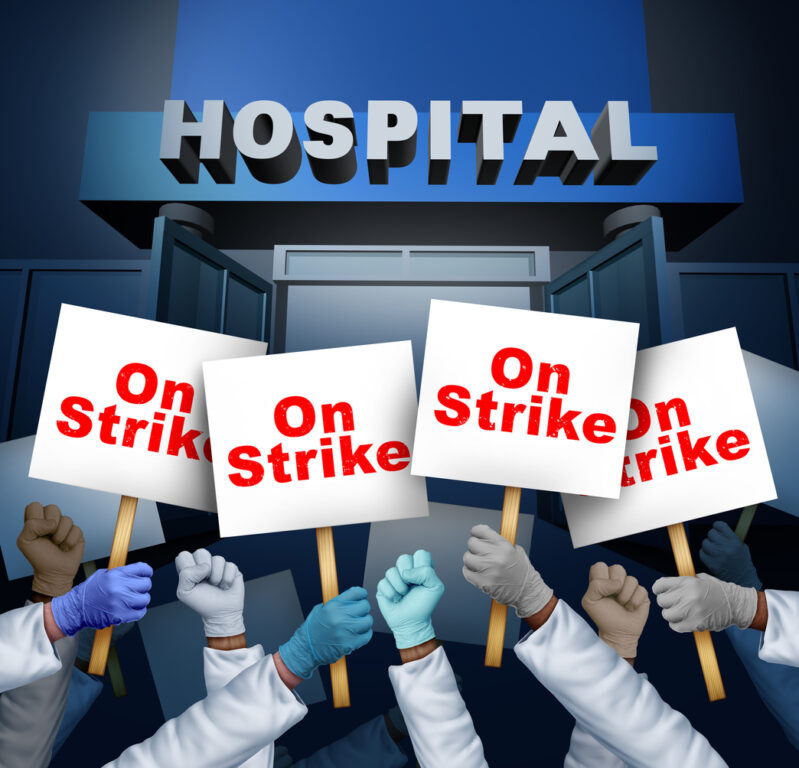A crisis in healthcare and its economic impact

Doctors in public hospitals have been on a weeks-long strike, demanding that the government meet a range of conditions. The main issues driving the ongoing strike include the government’s failure to implement the 2017-2021 Collective Bargaining Agreement on salaries and better working conditions, as well as the delayed placement of medical interns. The industrial action by the medics, while being legitimate and an exercise of their constitutional right, has had dire consequences. Healthcare services in public hospitals, where the majority of Kenyans seek medical treatment, have been stalled for weeks. Patients without the financial means to visit private hospitals have been left stranded without medical assistance, leading to an increase in mortality and morbidity rates in public hospitals.
The ripple effect of the ongoing strike has not only affected the well-being of Kenyans but has largely affected the economy. A stable and functioning economy relies on the good health and performance of its citizens. Performing public health systems are key drivers of sustainable socio-economic development. Stalled public health services result in loss of revenue for the health institutions and also impact other sectors due to increased absenteeism from work caused by sicknesses.
Prolonged industrial actions also impact the country’s reputation for investment and tourism. Stakeholders must engage in constructive dialogue and negotiation to address the underlying issues of medical practitioners. A sustainable solution is not only urgent but critical to minimise the impact on the economy and public health arising out of recurrent medical industrial actions.
Over the weeks, relevant stakeholders have attempted dialogue without success for various reasons. Recently, medical practitioners filed a case in court seeking to compel the Ministry of Health’s relevant leadership to attend negotiation talks and reach a mutual agreement. The Court extended the negotiation period, giving the medical practitioners represented by their union, Kenya Medical Practitioners Pharmacists and Dentists Union (KMPDU), and the Ministry of Health a further 14 days to reconcile and record a settlement in court.
The 14 days further exacerbate the public health crisis in the country, which continues to loom as medics remain defiant about resuming work before their conditions are met by the government. The demands of the medical practitioners require budgetary allocation, and the country is now faced with limited resources due to its obligations on debt servicing. The government recently announced the release of KSh 2.4 billion, which the doctors were not satisfied with. They are demanding double the amount to cater for the payment of the medical interns.
To meet the needs of the medical practitioners, the government may need to allocate additional resources to manage the impact of the health crisis and settle an agreement. This will certainly strain the government’s budget on the health sector and may likely divert funds away from other priority areas such as National Referral and Specialized Services, Curative and Reproductive Maternal Neonatal Child & Adolescent Health (RMNCAH) Services, Health Innovations and Research, General Administration and Support Services, Preventive & promotive health services, among others as highlighted in the 2024 Budget Policy Statement. To implement these programmes, the Health Sector has been allocated KSh 147.5 billion, Ksh 155.5 billion and Ksh 160.1 billion in the FY 2024/25, 2025/26 and 2026/27, respectively.

